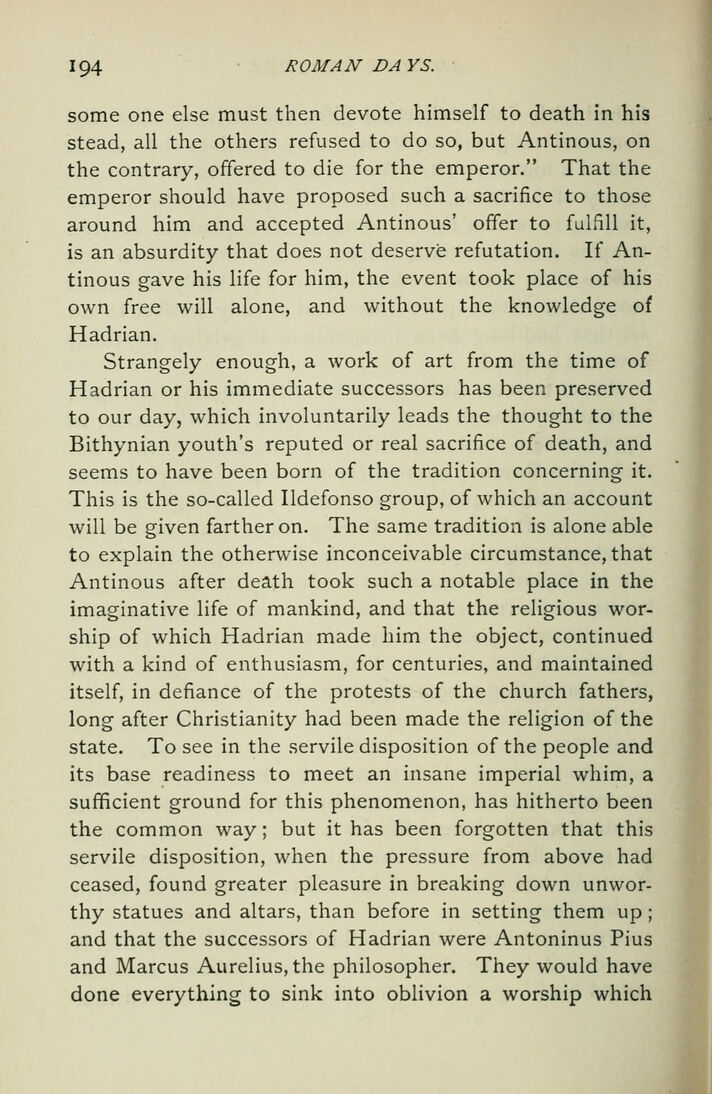
Full resolution (JPEG) - On this page / på denna sida - Antique Statues - 2. Antinous

<< prev. page << föreg. sida << >> nästa sida >> next page >>
Below is the raw OCR text
from the above scanned image.
Do you see an error? Proofread the page now!
Här nedan syns maskintolkade texten från faksimilbilden ovan.
Ser du något fel? Korrekturläs sidan nu!
This page has never been proofread. / Denna sida har aldrig korrekturlästs.
194 ROMAN DA YS.
some one else must then devote himself to death in his
stead, all the others refused to do so, but Antinous, on
the contrary, offered to die for the emperor." That the
emperor should have proposed such a sacrifice to those
around him and accepted Antinous’ offer to fulfill it,
is an absurdity that does not deserve refutation. If An-
tinous gave his life for him, the event took place of his
own free will alone, and without the knowledge of
Hadrian.
Strangely enough, a work of art from the time of
Hadrian or his immediate successors has been preserved
to our day, which involuntarily leads the thought to the
Bithynian youth’s reputed or real sacrifice of death, and
seems to have been born of the tradition concerning it.
This is the so-called Ildefonso group, of which an account
will be given farther on. The same tradition is alone able
to explain the otherwise inconceivable circumstance, that
Antinous after death took such a notable place in the
imaginative life of mankind, and that the religious wor-
ship of which Hadrian made him the object, continued
with a kind of enthusiasm, for centuries, and maintained
itself, in defiance of the protests of the church fathers,
long after Christianity had been made the religion of the
state. To see in the servile disposition of the people and
its base readiness to meet an insane imperial whim, a
sufficient ground for this phenomenon, has hitherto been
the common way ; but it has been forgotten that this
servile disposition, when the pressure from above had
ceased, found greater pleasure in breaking down unwor-
thy statues and altars, than before in setting them up
;
and that the successors of Hadrian were Antoninus Pius
and Marcus Aurelius, the philosopher. They would have
done everything to sink into oblivion a worship which
<< prev. page << föreg. sida << >> nästa sida >> next page >>